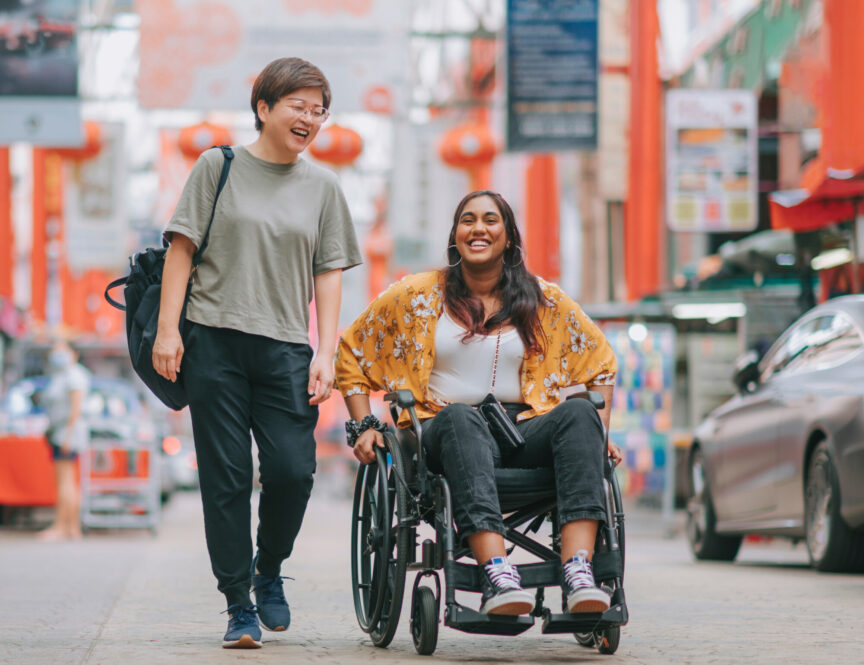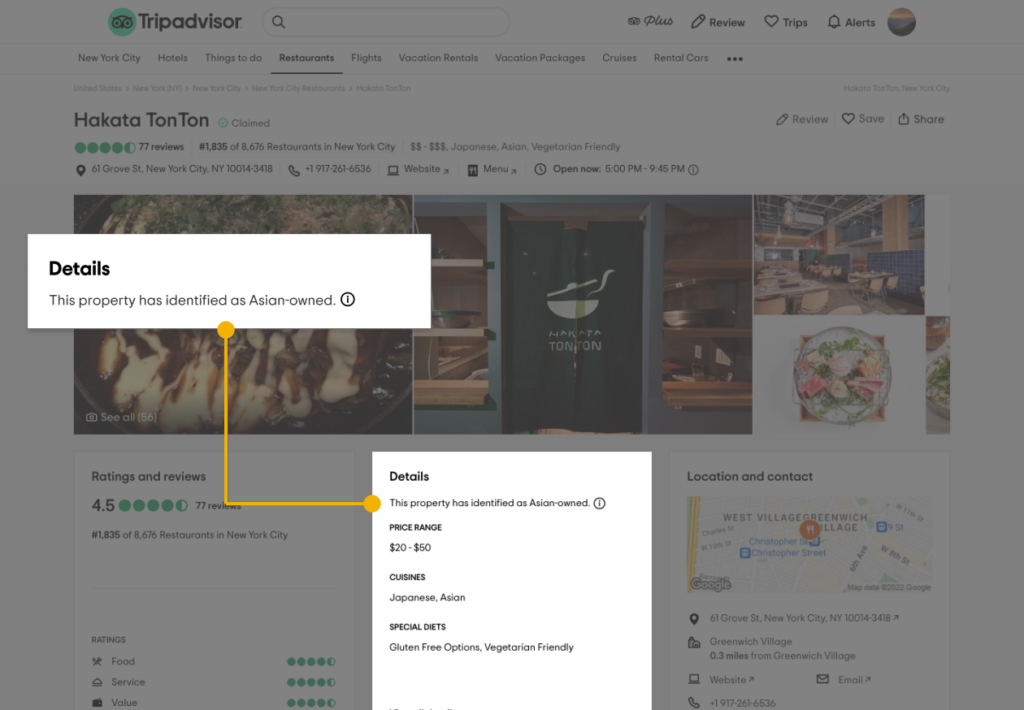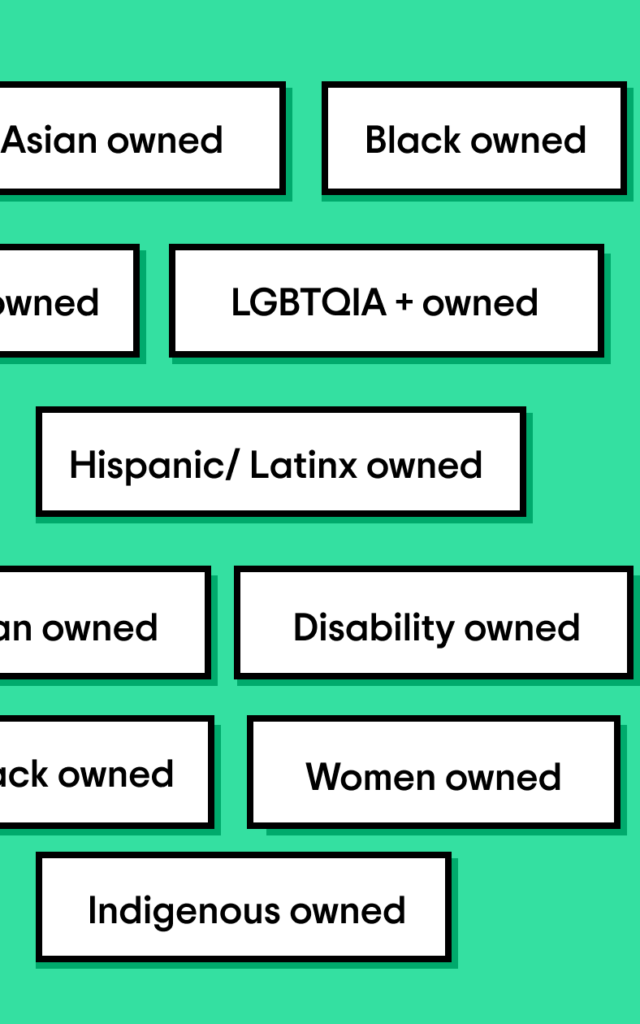February 21, 2023
A Portrait of Travelers with Mobility Disabilities
We recently partnered with MMGY who surveyed 2,789 travelers with mobility disabilities in the U.S. to learn more about their travel needs and preferences. Here’s what we found.

February 21, 2023
We recently partnered with MMGY who surveyed 2,789 travelers with mobility disabilities in the U.S. to learn more about their travel needs and preferences. Here’s what we found.

There’s nothing more disheartening than arriving at a bucket-list destination, only to be unable to enjoy the experience. Whether it’s too-small entryways, broken elevators, or inaccessible walkways, travelers with mobility disabilities always have to think one step ahead of their travel plans, unsure if they’ll be welcomed in every space.
At Tripadvisor, we believe that the world should be open to everyone. That’s why we partnered with MMGY and a variety of organizations to hear from 2,789 travelers with mobility disabilities in the U.S. and understand their needs, behaviors, and concerns.*
Of respondents with mobility disabilities have taken a leisure trip in the past 12 months
(Compared to 83% of active leisure travelers**)
Average # of leisure trips per year
(Compared to 3.0 trips among active leisure travelers*)
A quick note on terminology: respondents were asked which term they prefer to describe their disability when that information is important or relevant to the situation. The top response was “wheelchair user” (47%) followed by 40% who said ”traveler with a disability.” Our study was open to those using any type of mobility aid, and not just wheelchairs, and so we refer to respondents as “travelers with mobility disabilities” throughout this post.
Ultimately, travelers with mobility disabilities want the same opportunities to travel as everyone else. It’s up to the travel industry to make strides to accomplish this. Here’s what we learned — and what needs to change:
We all hear a call to explore, and travelers with mobility disabilities are no different. 75% of respondents took a trip in the past 12 months, averaging 3.4 trips per year. What’s more, they invest significantly in their travel experiences, accounting for $58.2B in spend over the past 12 months. They also spend 16% more than active leisure travelers, spending an average of $3546 on each trip.
It’s not desire that often creates barriers to travel, however, but accessibility and navigation in-destination. Most travelers with mobility disabilities have experienced a problem while on their trip, including:
“I would probably travel more if accessibility were not so much of a headache! I spend a lot of time carefully planning and still run into accessibility barriers throughout the trip,” said one respondent. This sentiment was echoed across the feedback we solicited, with others noting that accessible pathways, hotel rooms, and transportation is often difficult to access, not well maintained, or requires long waits.
On top of this is an “accessibility tax.” Respondents state that up to 8% of their travel budget goes to accessibility-related extra costs, with many writing in stories of being quoted higher rates than non-accessible rooms or vehicles, if they’re available at all. “I feel like I’m being punished,” said one of our respondents.

81% of travelers with mobility disabilities stayed at a hotel in the last 24 months, but hotels don’t always make it easy for them. Barrier-free, automatic entry into buildings tops the list of expectations when they make a booking. But they’re also looking for roll-in showers, more space in bathrooms for mobility devices, adaptive entry shuttles, transfer showers, and lower bed heights. Almost every traveler (96%) has had some problem with their accommodations, such as showers or tubs not being accessible (81%) or the room at check-in not matching their booked room (54%).
What works for one type of disability may not work for others — for example, one respondent told us, “Hotels often locate accessible rooms at the far end of hallways, away from elevators. This is okay for someone in a power wheelchair, but not for a cane or walker.”
“The most consistent problem — and one that makes travel by myself impossible — is the bed height in most “accessible” rooms,” said another.
What makes this even more challenging is that travelers with mobility disabilities have to struggle to find the information they need. 59% said that hotel websites don’t always offer enough information to make them feel comfortable booking, and many wrote in to mention they often can’t take advantage of amenities because of lack of access.
Travelers with mobility disabilities and their caregivers rank travel websites like Triapdvisor as their top five source of inspiration and information, with a third using Tripadvisor for travel planning, research, and booking. That’s because these travelers want to hear from other travelers like them, looking for specific information and images to not just answer, “Can I travel here?” but “Can I enjoy traveling here?”
At Tripadvisor, we actively collect accessibility notes, asking travelers to tell us and verify information about hallway and doorways, ramps, elevators, and bathrooms when they leave their review. Tripadvisor gives business owners the opportunity to self-identify as having a disability, and is working on the same feature for reviewers for release in 2023.
Hotel & restaurant owners on Tripadvisor can now showcase their identity attributes* and get discovered by more guests. In the works for 2023: an option to have reviewers self-identify as having a disability


Hotel and restaurant owners on Tripadvisor can now showcase their identity attributes — and get discovered by more guests.
Read more about our identity attributes.
One thing our respondents agreed on? There is more to be done in terms of making travel more accessible for everyone. Mobility disabilities are not one-size-fits-all, and respondents consistently call out the need to have actual people with disabilities at the table when designing and implementing accessibility solutions.
“Don’t claim accessibility when doorways are too narrow for a wheelchair,” said one respondent. “Accessible does not mean a grab rail. Offer specific information and educate your team so they can help us find a room that will support our needs.”
Expanded information, improved infrastructure, and accessible lodging and transportation options are key to attracting travelers with mobility disabilities. If you don’t know the ADA requirements for your property, now is the time to make sure you’re not just in compliance, but able to actually serve the needs of these travelers. Said one respondent, “Please think of us as a family member or a close friend and make our travel experience as you would want yours and your loved ones to be.”
It’s up to us in the travel industry to make those changes.
Source: Portrait of Travelers with Mobility Disabilities Report, 2022. Partners: MMGY, Accessible Travel Solutions & Sage Traveling, Disability Opportunity Fund, New Mobility, NYC & Company, Permobil, Pure MIchigan, Travel Unity, United Spinal Association, Visit Mesa, Wheelchairtravel.org, and Wheel the World.